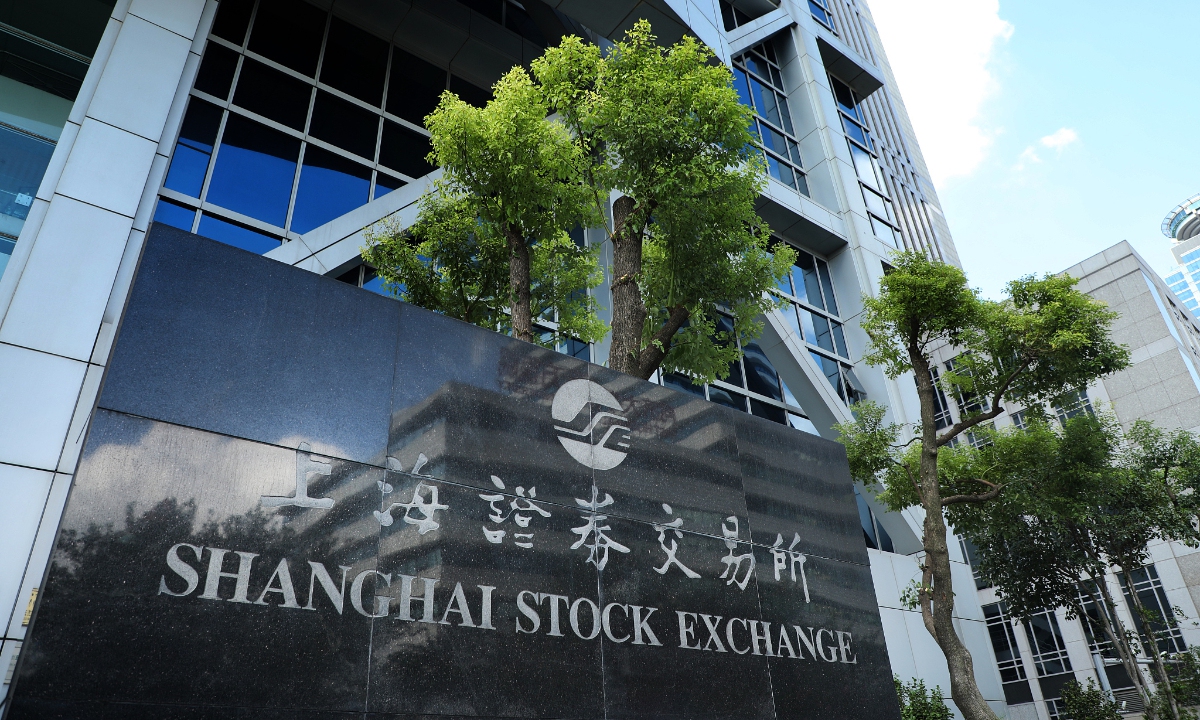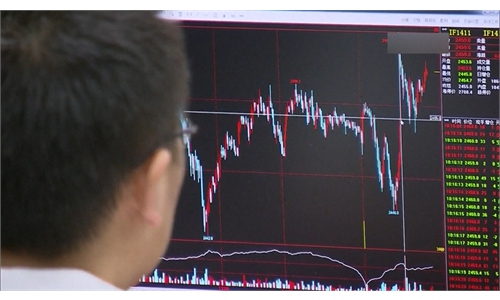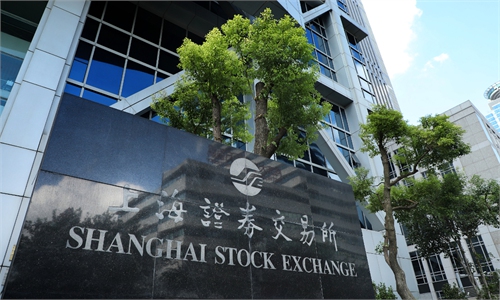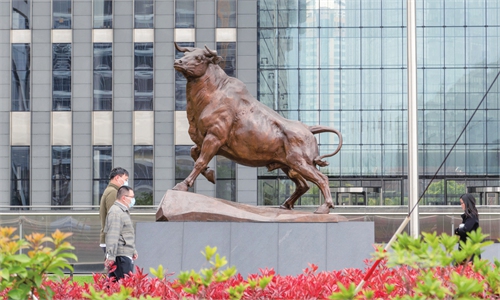
Shanghai Stock Exchange Photo:CFP
China's exchange-traded fund (ETF) market has reached a record high, with total assets under management nearing 2.5 trillion yuan ($349 billion), showcasing the robust growth and diversity of investment options in the country's capital markets.On Saturday, the Shanghai Stock Exchange issued a report on the development of the ETF market, revealing that the sector expanded by 430.9 billion yuan in the first half of 2024 to a total of 2.48 trillion yuan, up 21 percent from the end of 2023. The number of ETFs listed on Chinese exchanges rose to 967, a rise of 9 percent from the end of 2023.
The rapid expansion of ETFs in China has provided investors with a more diversified array of opportunities, covering a broader range of sectors and markets. This trend has enlivened the nation's capital market and allowed ordinary investors to benefit, according to analysts.
ETFs, thematic investment portfolios that cater to varying investor needs while mitigating the risks associated with individual stocks, are particularly suited for those who are bullish on specific sectors, Xi Junyang, a professor at the Shanghai University of Finance and Economics, told the Global Times on Sunday.
"ETFs offer a more comprehensive investment mechanism that allows targeted investments in favored industries without relying heavily on fund managers' stock picks," explained Xi.
Compared with mutual funds, ETFs offer a wider industry coverage and facilitate entry into the capital market for investors interested in specific sectors like new energy, Wang Yu, an analyst at Donghai Securities, told the Global Times on Sunday.
For example, in the new-energy sector, investors might find it challenging to determine which company's battery development prospects are the best or which company produces the best electric motors. However, they can directly purchase new-energy sector ETFs that cover all the major companies in the industry and profit from the continuous development of China's new-energy industry, Wang added.
In terms of inflows, ETFs experienced a substantial rise in the first half of 2024, with non-currency ETFs alone netting inflows of 461.7 billion yuan, nearly 80 percent of the previous year's total.
Among all types of ETFs, equity ETFs are the favorite of Chinese investors. According to the Shanghai Stock Exchange, equity ETFs make up 73 percent of the Chinese ETF market with a total of 1.81 trillion yuan.
The preference for ETFs in China is expected to continue given their numerous advantages such as combinable investments, immediate liquidity and direct trading through exchanges, Xi added.
The Shanghai Stock Exchange has committed to enriching the ETF product offerings and continuously improving market mechanisms, aiming to direct more capital toward emerging industrial sectors. Plans include incorporating STAR Market ETFs into the fund transfer platform, facilitating easier access for investors and guiding more capital toward China's fast-developing new quality productive forces.
China's increasingly enriched ETF market continues to provide investors with a growing array of investment methods and destinations. Two ETFs tracking large Saudi companies, including Saudi Aramco, made successful debuts on the Chinese mainland stock market on July 16.
Their values rose by the daily limit of 10 percent on the first day, with a premium of more than 6 percent, highlighting the strengthening links between financial markets in China and the Middle East.



